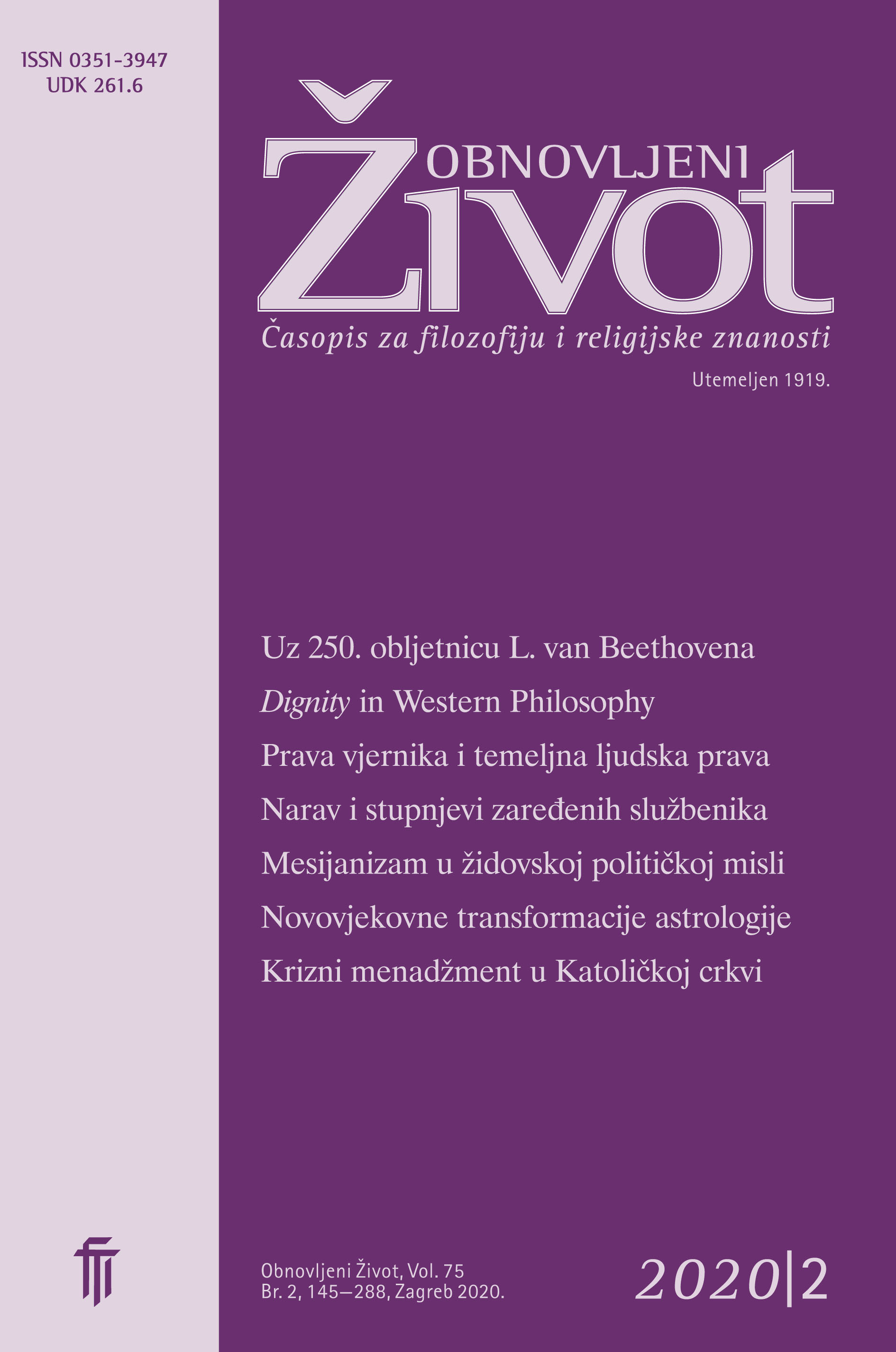The Relationship between the Rights of the Christian Faithful and Human Rights
Keywords:
rights of the Christian faithful, human rights, Universal Declaration of Human Rights, Second Vatican Council, Code of Canon Law, People of GodAbstract
The regulation in the Church of the rights of the Christian faithful is one of the greatest milestones of the Code of Canon Law. The Second Vatican Council had a great effect on the raising of this issue. The documents of the Council speak very clearly about the requirement to respect, not only the obligations of the faithful in the Catholic Church, but also their rights. No less significant was the contribution of the Universal Declaration of Human Rights, a document which focuses on human dignity. The obligation to respect this same dignity is invoked also in the doctrine of the Church. On the basis of an analysis of the relationship between the rights of the Christian faithful and human rights in general, this article endeavours to explain and highlight the similarities and differences between these two systems. Despite the fact that they are grounded in natural law, the rights of the Christian faithful cannot be equated fully with fundamental human rights. Moreover, human rights are based on natural law, while the former arise from their incorporation into the community of the People of God. The Church is aware that human rights today are largely violated in the name of individual freedom. Her mission is to appeal for the respect of those rights, and she is assisted in this task by the Universal Declaration of Human Rights. It is precisely this document that is essential to the process of building a mature and healthy consciousness and morality in accordance with the dignity of each community member.
Published
Issue
Section
License
Jednom prihvaćeni članak obvezuje autora da ga ne smije objaviti drugdje bez dozvole uredništva, a i tada samo uz bilješku da je objavljen prvi put u Obnovljenom životu. Uredništvo će obavijestiti autora o prihvaćanju ili neprihvaćanju članka za objavljivanje.
Članci objavljeni u časopisu se, uz prikladno navođenje izvora, smiju besplatno koristiti u obrazovne i druge nekomercijalne svrhe.


